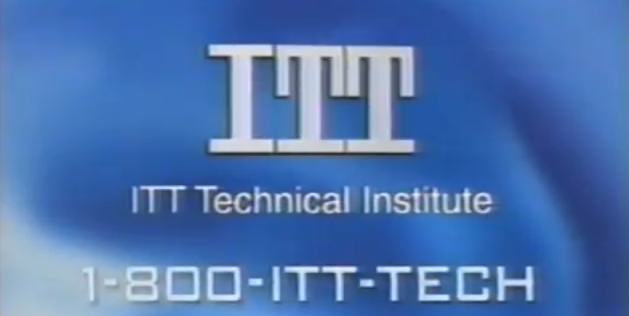Despite efforts by the Department of Education to educate prospective college students about the burden of student loans, nearly two-thirds of students who took out loans to pay for college say they had no idea what they were signing up for. To fix this problem, it’s going to take more than making these students sit in a class about financial aid and student loans; it may require an overhaul of the entire college financing system. [More]
Education

Know Before You Owe Mountains Of Student Loan Debt
Each year millions of students take out thousands upon thousands of dollars in student loans and other financial aid to help pay for a college education. But as we found out yesterday, many of these prospective students are woefully unprepared for the reality of student loan debt. From reading through piles of paperwork to making payments each month and keeping track of loan servicers, financing your education can be overwhelming, but that doesn’t mean you shouldn’t learn as much as possible before you end up under a mountain of loan debt. [More]

Advisory Panel Votes To Revoke Troubled College Accreditor’s Recognition
A week after staff with the Department of Education recommended the termination of federal recognition for the accrediting body that ignored red flags at failed for-profit educator Corinthian Colleges and allowed billions in federal aid to go to schools under investigation, the panel on the receiving end of that recommendation voted to sever ties with Accrediting Council for Independent Colleges and Schools. [More]

Banks Trying To Attract Customers With Products To Reduce, Repay Student Loans
With student loan debt in the U.S. now well beyond $1 trillion, everyone seems eager to get into the debt-reduction business. Some cities will pay down your debt if you move there, while a growing number of employers are making loan payment contributions part of the benefits package. Now some financial institutions are dangling the debt-reduction carrot in front of potential customers — but should you bite? [More]

Federal Student Loan Customer Service In Need Of “Significant” Improvements
Last year, the Department of Education issued more than $96 billion in federal student loans to more than 9.1 million college students. Someday in the future these borrowers will begin repaying these debts, but a new report finds that limitations and a disconnect between the federal government and its contracted loan servicers can make this a daunting and sometimes costly task. [More]

Proposed Rule Stops Colleges From Stripping Students Of Their Right To Sue
A recent study found that almost all of the nation’s largest for-profit college chains have enrollment agreements that block students from suing the school and prevent them from joining in class actions against these colleges. Following the 2015 bankruptcy and collapse of mega-chain Corinthian Colleges Inc., the sagging numbers at University of Phoenix, last week’s death knell for Brown Mackie College, and pending investigations and lawsuits against ITT and others, the Department of Education has decided that maybe these schools — which reap billions in federal aid each year — should probably have to be held accountable in a court of law when they screw students over. [More]
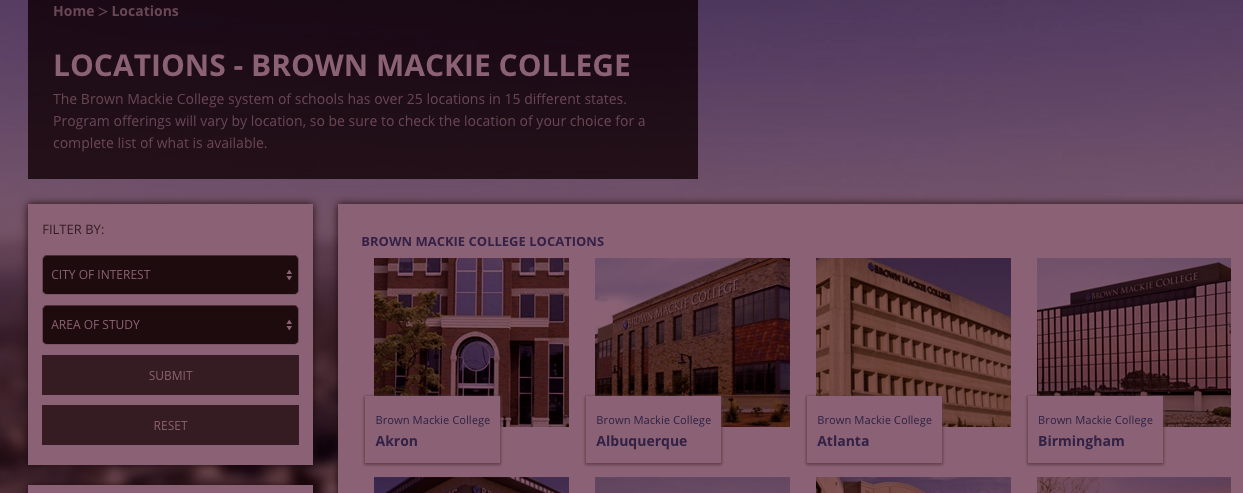
Emails Show How Brown Mackie College Is Giving Students & Employees Bad News About School Phase-Outs
Earlier today, we reported that the country’s second largest for-profit educator, Education Management Corporation will stop enrolling students at most of its Brown Mackie locations while “teaching out” the students that remain. Now, we have documents showing how the school is notifying both students and employees of the grim news. [More]
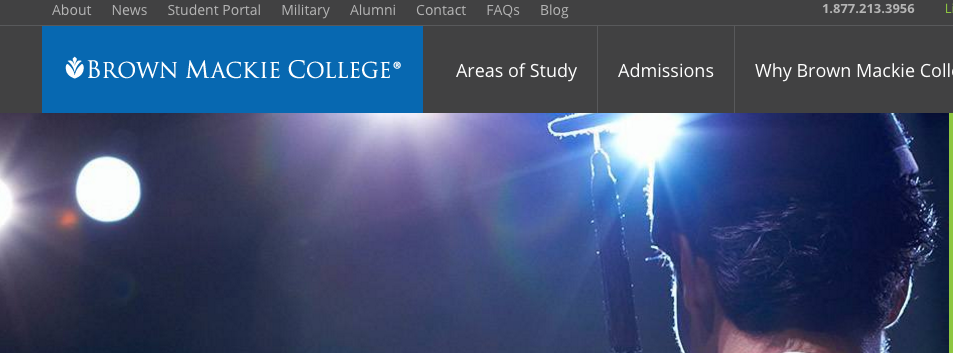
For-Profit Brown Mackie College Ceasing Enrollment, Phasing Out Most Locations
The nation’s second largest for-profit educator, Education Management Corporation – the operator of chains like Brown Mackie College, Argosy University and the Art Institutes – will stop enrolling students at most of its Brown Mackie locations while “teaching out” the students that remain. [More]
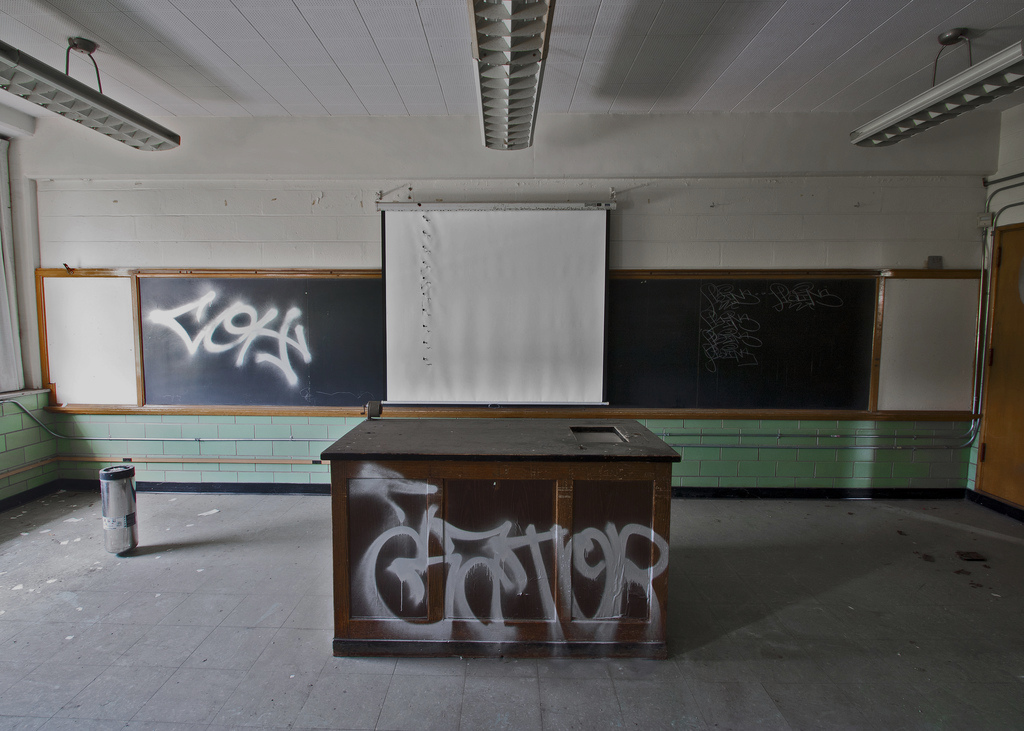
Elizabeth Warren Says Accreditor Of For-Profit Colleges Has “Dismal Record Of Failure”
Only days after a report found that an organization responsible for accrediting a number of for-profit colleges had engaged in a “pattern” of providing approval to schools with bad track records, resulting in these colleges receiving nearly $6 billion in federal funds, Sen. Elizabeth Warren is joining the chorus of voices calling on the Department of Education to take action. [More]

Report: Accreditor Allowed $5.7B In Federal Funds To Go To Schools Under Investigation
Less than a week after California’s Attorney General urged the Department of Education to revoke federal recognition of Accrediting Council for Independent Colleges and Schools (ACICS) following its continued approval of for-profit education chain Corinthian Colleges Inc. up until the day the now defunct schools closed their doors, a new report reveals ACICS’s “pattern” of providing approval to schools with bad track records, resulting in the funneling of more than $6 billion in federal funds to those schools. [More]
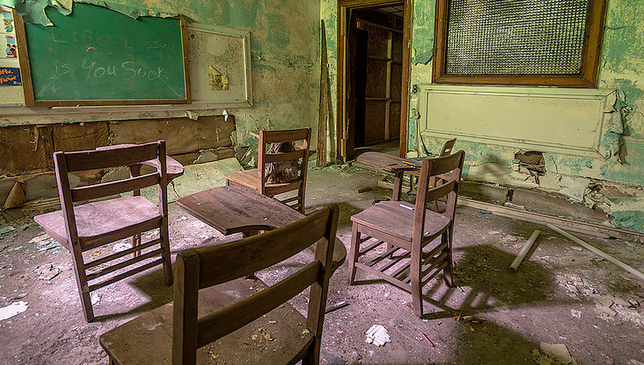
Should Agency That Provided Accreditation To Corinthian Colleges Be Held Accountable In School’s Failure?
Up until the day it collapsed in 2015, for-profit education chain Corinthian Colleges Inc. was accredited by Accrediting Council for Independent Colleges and Schools (ACICS), one of the nation’s largest federally recognized accrediting bodies. With taxpayers potentially on the hook for hundreds of millions of dollars in forgiven student loans, the California Attorney General is calling on the Department of Education to revoke federal recognition of ACICS. [More]

Report: For-Profit College Students Earn Less After Graduation Than They Did Before
For-profit college chains often market themselves to non-traditional students — single parents, lower income individuals, military servicemembers — as a viable path to better job prospects and more money. However, a new report suggests that enrolling in of these sometimes costly schools may not help students reach their goals. [More]

20,000 For-Profit College Students Ask Education Dept. To Cancel Their Student Loans
As the fallout continues from the collapse of Corinthian Colleges Inc. — former operator of Everest University, WyoTech, and Heald College — the Department of Education is trying to sort through nearly 20,000 loan-forgiveness requests from former students who claim that CCI and other for-profit colleges misled them into taking out huge student loans. [More]

University Of Phoenix To Stop Stripping Students Of Their Right To Sue School
A recent study found that student enrollment agreements at virtually all of the nation’s biggest for-profit colleges have forced arbitration clauses that strip students of their rights to file a lawsuit against the school, and in most cases bar students from joining their similar or identical disputes together. Under pressure from lawmakers and consumer advocates who questioned how these schools could continue to take billions in federal aid while trying to avoid accountability in the courtroom, the nation’s biggest for-profit educator has decided to stop using the controversial arbitration clauses. [More]
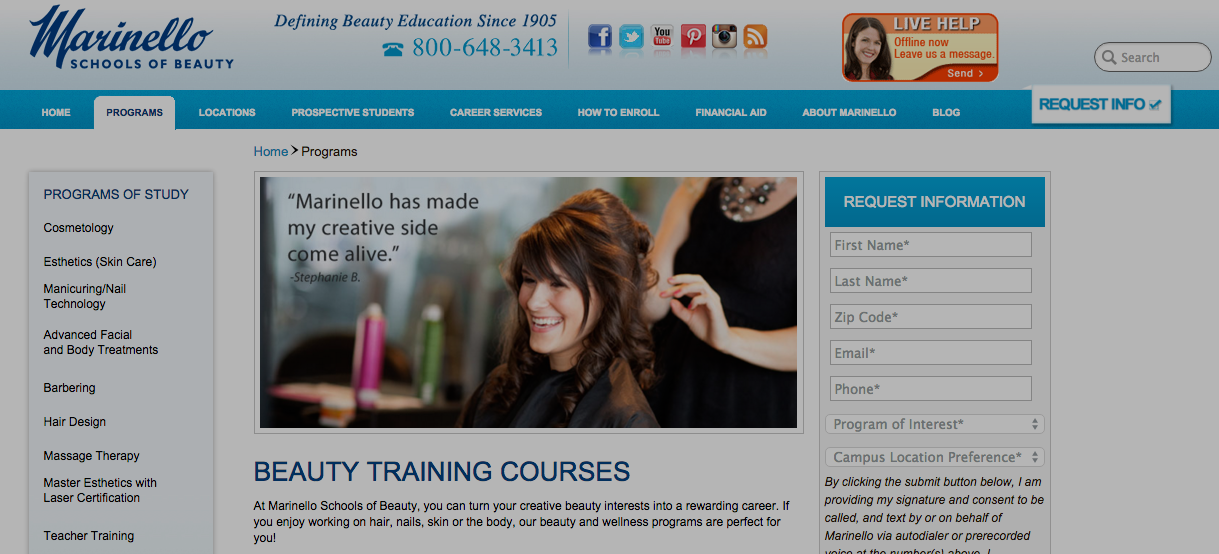
Defunct Beauty School Settles Whistleblower Suit Accusing It Of Falsifying Records
Two months after abruptly closing its doors as a result of losing access to federal student financial aid, the for-profit Marinello Schools of Beauty has settled a whistleblower case that accused the school of engaging in various schemes to defraud the government of federal financial aid dollars. [More]

Screwed Over By A For-Profit College? You Probably Signed Away Your Right To Sue
When Corinthian Colleges Inc. collapsed, leaving thousands of students in the lurch with student loan debt and credits that they didn’t know would be usable at other schools, they were generally unable to sue the failed for-profit educator because the students had unwittingly signed away their right to a jury trial or class action. CCI wasn’t the only for-profit operator with this anti-consumer practice, and a new report tries to get a grasp on the scope of the problem. [More]




